
The Music of Brazil
SOLOISTS
SOLOISTS
CONDUCTORS
ENSEMBLES & ORCHESTRAS
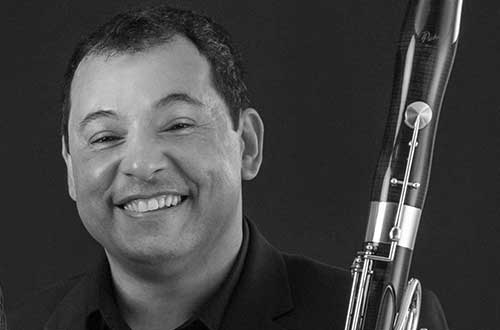
Bassoon
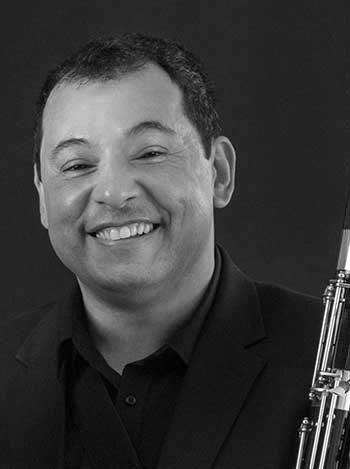
Alexandre Silvério, Bassoon
First Bassoon with the OSESP since 2004, Alexandre Silvério was born in Osasco, Brazil. He began studying the bassoon at the age of 15, and received funding from the Vitae Foundation to study in Berlin with Klaus Thunemann and later at the Karajan Academy of the Berliner Philharmoniker. During that period, he had the opportunity to perform with the Berliner Philharmoniker under conductors such as Simon Rattle, Pierre Boulez and Seiji Ozawa.

Cello
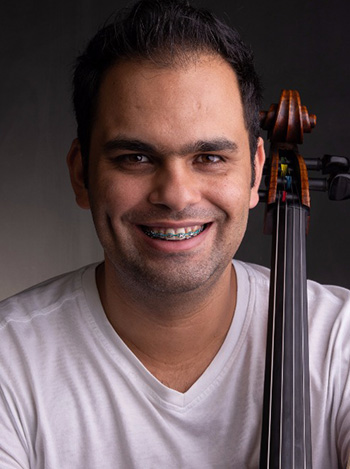
Rafael Cesario, Cello
Award-winning cellist Rafael Cesario studied at the University of São Paulo and the Conservatoire à rayonnement départemental du Val de Bièvre, Paris, where he was under the tutelage of Romain Garioud. He has also had masterclasses with Antonio Meneses, Alisa Weilerstein and Sol Gabetta, among many others. As a soloist, he has performed with numerous prestigious orchestras including the Paraná Symphony Orchestra, São Paulo Municipal Symphony Orchestra and the University of São Paulo Symphonic Orchestra. At the 2017 Trancoso Music Festival he appeared as a soloist and chamber musician alongside renowned musicians such as Mathieu Dufour and Andreas Wittmann. Over the last two years he has released three digital albums: Um Outro Adeus and Meu Brasil with André Mehmari, and Beethoven Variations with Marcos Aragoni. In 2022, Cesario joined the São Paulo State Symphony Orchestra (OSESP) as guest first cello, including on a tour of the United States where he performed at Carnegie Hall. He is currently a member of the São Paulo City String Quartet.
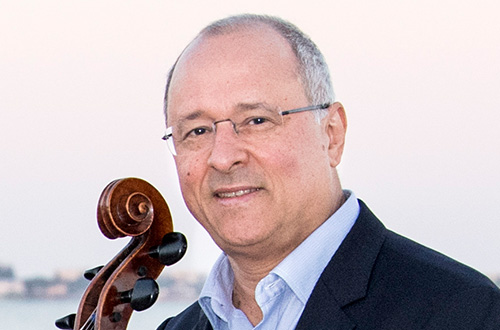
Cello

Antonio Meneses, Cello
Brazilian cellist Antonio Meneses’ international career took off in 1982, when he won the First Prize and Gold Medal in the Tchaikovsky Competition in Moscow at the age of 25. He has appeared as soloist with many of the world’s finest orchestras and worked with such eminent conductors as Herbert von Karajan, Claudio Abbado, Riccardo Muti, Riccardo Chailly, Mariss Jansons and Mstislav Rostropovich. Meneses gives regular chamber recitals, and has worked with the Emerson, Vermeer, Amati and Carmina quartets, as well as having been a member of the Beaux Arts Trio from 1998 to 2008.
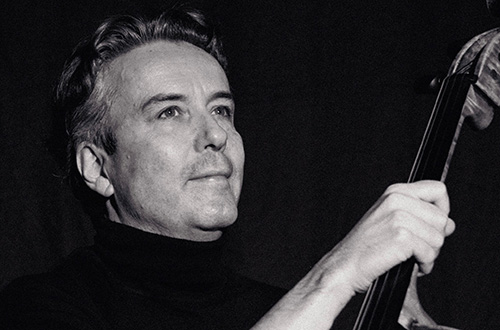
Cello
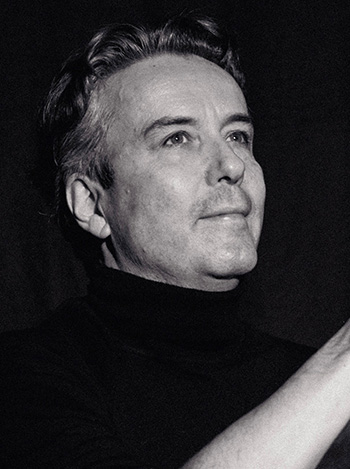
Matias de Oliveira Pinto, Cello
Cellist Matias de Oliveira Pinto has appeared as soloist and chamber musician in the world’s most prestigious concert halls. He is artistic director of the Ouro Branco Festival (Brazil), Cellofest (Chile) and Verden Festival (Germany). In 1979, while still studying with Zigmunt Kubala, he himself took up a teaching post at the School of Music and Fine Arts of the State of Paraná (Curitiba). The following year he travelled to Berlin, having been awarded a scholarship by the Berliner Philharmoniker’s Karajan Academy. He also studied at the Hochschule der Künste Berlin and the Franz Liszt Academy in Budapest.
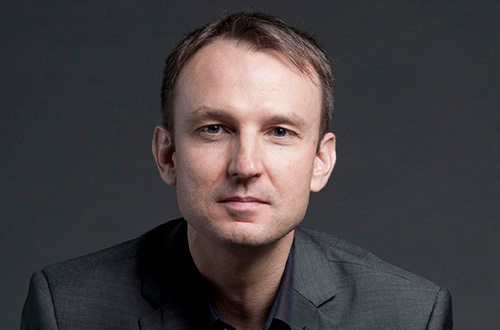
Clarinet
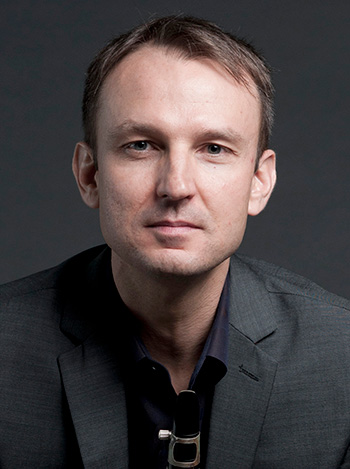
Ovanir Buosi, Clarinet
Ovanir Buosi is principal clarinet of the São Paulo Symphony Orchestra since 1997. As well as winning the Weril Wind Prize, he has received awards in the OSESP Young Soloists Competition, the Rádio MEC performers competition, and the tenth edition of the Prêmio Eldorado de Música. He is a dedicated chamber musician and his discography includes a recording of works for wind quintet by composers of North and South America.
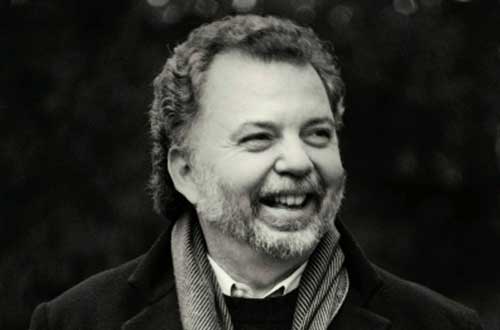
Guitar

Manuel Barrueco, Guitar
Manuel Barrueco has performed in major concert halls such as the Musikverein in Vienna, the Concertgebouw in Amsterdam, the Royal Albert Hall in London, the Berliner Philharmonie, the Teatro Real in Madrid and the Palau de la Música in Barcelona. He is a resident artist at the Conservatorio de Música de Puerto Rico and the University of Alicante in Spain. His recording of Rodrigo’s Concierto de Aranjuez with the Philharmonia Orchestra conducted by Plácido Domingo (EMI Classics, 1997) was voted as the best ever recording of the work by Classic CD magazine.
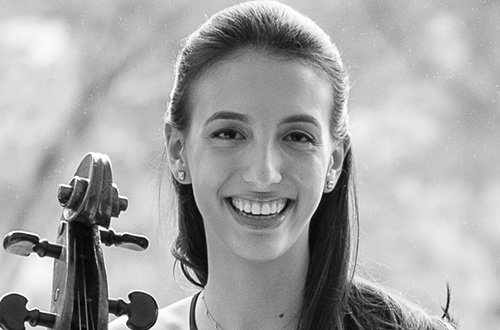
Cello

Marina Martins, Cello
Brazilian cellist Marina Martins began to learn the cello at the age of three. At eight, she won her first competition, and at sixteen made her debut as a soloist in Bristol, England. She has won awards in several countries, including the 2021 ‘Exilarte Preis’ (Austria), and the Young Soloists Competition followed by the Eleazar de Carvalho Medal, both awarded by Osesp, in 2018. Martin’s pursuit for musical development has led her to live in the United States, England, Germany and Switzerland. She was a student of Pieter Wispelwey at the Robert Schumann Hochschule Düsseldorf for four years, and currently studies with Danjulo Ishizaka at the Musik Akademie Basel. An enthusiastic chamber musician, Martins has performed with renowned artists such as Pieter Schoeman, Wenzel Fuchs and Stefan Mendl, among others. She has also appeared with prestigious orchestras and conductors in England, Switzerland, Italy, France, Germany, Austria, the United States, Canada and Brazil. Martins currently performs on a cello by Giuseppe Guarneri ‘filius Andreae’ (c. 1700) loaned by a private collector, and on a cello by Michael Stürzenhofecker, Cully (2009).
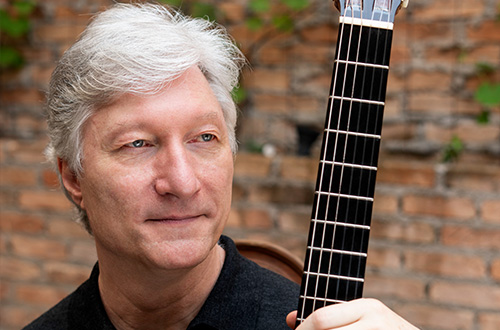
Guitar
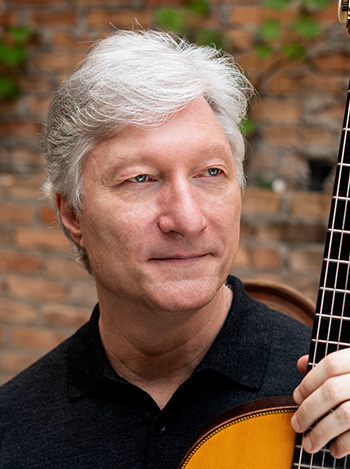
Fabio Zanon, Guitar
Fabio Zanon has performed in over 50 countries, has appeared as a soloist with prestigious international orchestras and his vast repertoire includes numerous world premiere performances. He has been awarded first prizes at numerous international guitar competitions. His discography includes a critically acclaimed album of the works of Villa-Lobos, and he has written and broadcast the programme The Art of the Guitar at Rádio Cultura in São Paulo. He regularly appears as a soloist-conductor and is a visiting professor and fellow of the Royal Academy of Music.

Harmonica
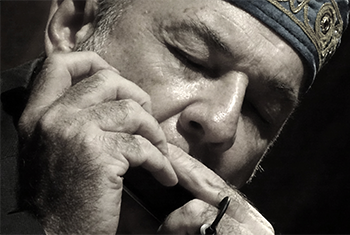
José Staneck, Harmonica
Brazilian harmonica player José Staneck has had pieces dedicated to him by H.J. Koellreutter, Marlos Nobre, Egberto Gismonti and Edino Krieger. He has appeared as a soloist with several major orchestras such as the Brazilian and Petrobras Symphony Orchestras, the Orquestra Sinfônica de Porto Alegre, the Orquesta Sinfónica Simón Bolívar, Venezuela, the National Symphony Orchestra of Lima, Peru, and I Musici de Montréal, performing works by Villa-Lobos, Radamés Gnattali and Vaughan Williams.
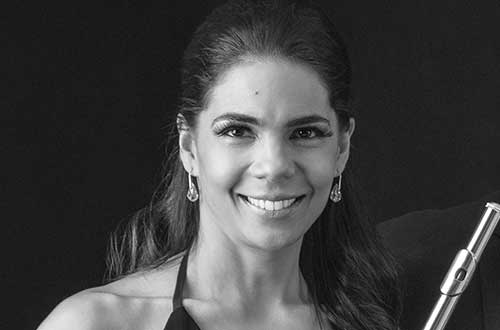
Flute
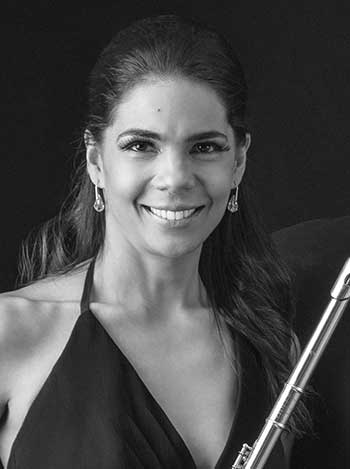
Cláudia Nascimento, Flute
First Flute of the OSESP and a member of the orchestra since 2015, Cláudia Nascimento has worked with eminent artists such as Lorin Maazel, Kurt Masur and Semyon Bychkov, and performed as a soloist with the Brazilian Symphony Orchestra, Experimental Repertory Orchestra, São Paulo State Youth Orchestra and OSESP. She has been awarded various prizes and was a member of the Brazilian Symphony Orchestra from 2008 to 2014.
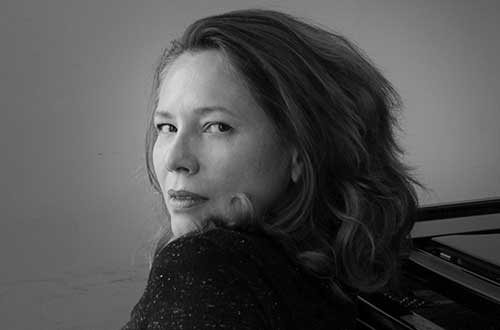
Piano

Karin Fernandes, Piano
Pianist Karin Fernandes has been awarded First Prize in 21 piano competitions across Brazil, including at the prestigious 1999 Prêmio Eldorado de Música. Fernandes is especially dedicated to performing 20th- and 21st-century piano repertoire, and has given many premieres. As a soloist she has appeared with prestigious Brazilian orchestras, and as a recitalist has performed in Portugal, England, France, Argentina and Paraguay. Fernandes’ discography comprises twelve award-winning releases, with her album Cria – New Brazilian Piano Music Vol. 1 being awarded the Revista Concerto’s Prize for Best Disc of 2015.

Piano
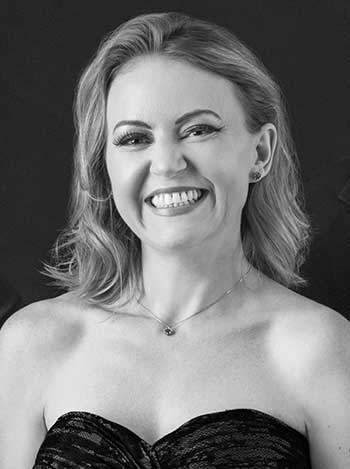
Olga Kopylova, Piano
Pianist with the São Paulo Symphony Orchestra (OSESP) since 1999, Olga Kopylova was born in Uzbekistan and studied at the Moscow State Tchaikovsky Conservatory. As a soloist, she has performed with the OSESP, the Campinas Symphony Orchestra and the Curitiba Chamber Orchestra, among others. She performs chamber music at the OSESP’s series of chamber concerts and with her own ensembles, such as the Sexteto São Paulo and Duo Virtuose.
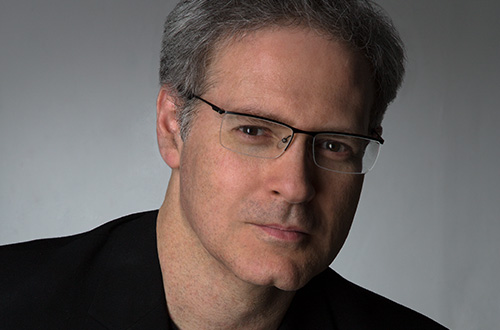
Piano
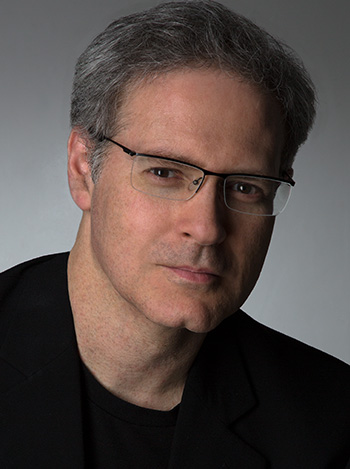
Eduardo Monteiro, Piano
Considered one of the great Brazilian pianists, Eduardo Monteiro gained international recognition when he won First Prize at the 1989 Cologne International Piano Competition. He was also a prizewinner of the 1991 Dublin and 1992 Santander International Piano Competitions. Monteiro has performed as a soloist with major orchestras in Brazil and abroad, collaborating with conductors such as Yuri Temirkanov, Mariss Jansons, Dmitrij Kitajenko, Philippe Entremont and Arnold Katz. He has a special interest in Brazilian music, and his interpretations are regarded as a benchmark of excellence. His album Piano Music of Brazil received enthusiastic reviews in major international specialist publications. From 2008 to 2010, he served on the advisory board of music for the State Council of Culture of São Paulo. He was vice-president of the Academic Activities Committee, and director of both the School of Communication and Arts at the University of São Paulo, and the institution’s symphony orchestra. Monteiro is currently a piano professor at the University of São Paulo, and is the cultural director of the Fundação Maria Luisa e Oscar Americano.

Piano

Pablo Rossi, Piano
Brazilian pianist Pablo Rossi won the first Nelson Freire National Competition for New Brazilian Talents in 2003. He has won more than 10 competitions and given over 80 recitals as a member of The Keyboard Charitable Trust. Rossi has performed as a soloist with the Chamber Orchestra Kremlin, the Auvergne Chamber Orchestra, the National Philharmonic of Ukraine, Kirov Orchestra and the São Paulo Symphony Orchestra, among others.

Piano
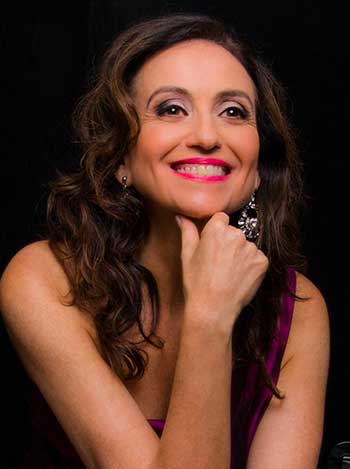
Sonia Rubinsky, Piano
Sonia Rubinsky was awarded Best Classical Album at the 2009 Latin GRAMMY Awards for the eighth volume of the complete works of Heitor Villa-Lobos, recorded for Naxos (8.570504). Thrice a recipient of the prestigious Carlos Gomes Prize in her native Brazil, Rubinsky was nominated by Murray Perahia to be artist-in-residence at the Edward Aldwell International Center for Piano Performance and Musicianship in Jerusalem, where she regularly gives masterclasses. Composer Almeida Prado has dedicated several of his works to her, including Cartas Celestes XII, Três Croquis de Israel and 20 Flashes de Jerusalém.
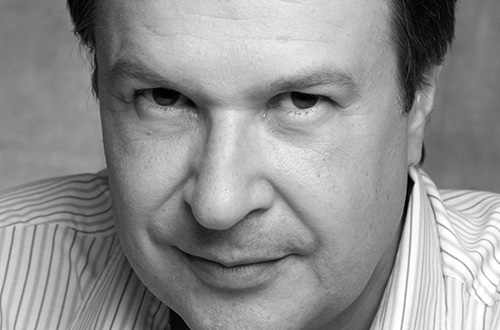
Piano
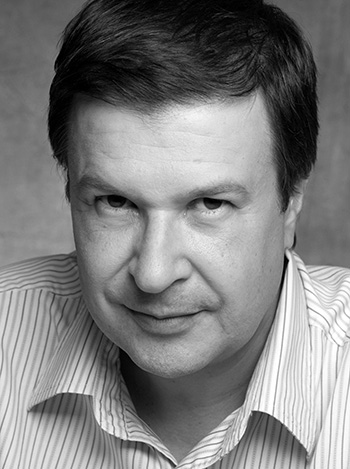
Alessandro Santoro, Piano
Born in Rio de Janeiro, Alessandro Santoro undertook a Master’s degree in piano at the Moscow State Tchaikovsky Conservatory and completed his Master’s degree in harpsichord at the Koninklijk Conservatorium in The Hague, where he later joined the faculty. He has performed across Europe as a member of ensembles La Petite Bande and Orchestra of the 18th Century, and was founder of Den Haag Baroque Orchestra. His discography comprises 22 albums, with his release of works by Leclair, alongside Luís Otávio Santos and Ricardo Rodríguez Miranda, receiving a Diapason d’Or. As a pianist, he has extensively recorded the works of his father Claudio Santoro, including the complete works for violin and piano with violinist Emmanuele Baldini, Piano Concerto No. 1 with the Samara State Philharmonic Orchestra, and an album of unpublished works with bassoonist Fábio Cury. Since 1989 he has been editing and publishing his father’s oeuvre, as well as administering his virtual archives. Alessandro Santoro is currently a professor of harpsichord and basso continuo at the Escola de Música do Estado de São Paulo (EMESP).
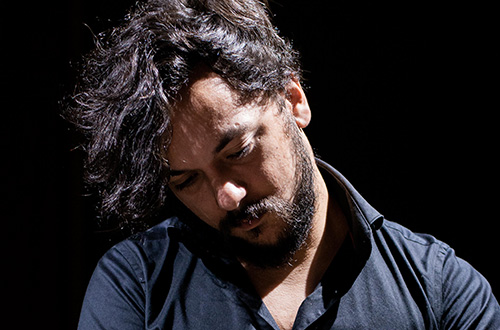
Piano
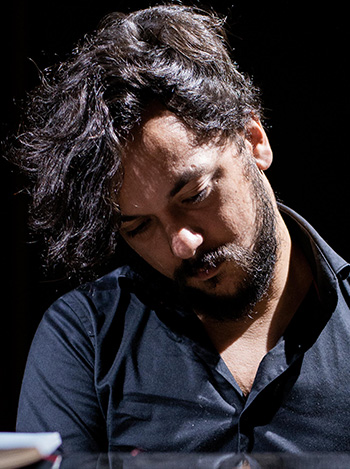
Lucas Thomazinho, Piano
Acclaimed Brazilian pianist Lucas Thomazinho enjoys a remarkable career. He has performed as a soloist with prestigious orchestras across Brazil, including the São Paulo State Symphony Orchestra (Osesp), Orquestra Filarmônica de Minas Gerais, Orquestra Sinfônica da Bahia and the Orquestra Amazonas Filarmônica, and outside Brazil has appeared at Jordan Hall in the United States, the Conservatório de Música de Coimbra and Casa da Música in Portugal, Cité internationale universitaire de Paris, and Schloss Hallenburg in Germany. A laureate of numerous international piano competitions, he was awarded the Finalist Prize at the XIX Santander International Piano Competition, First Prize at the XVIII Santa Cecilia International Competition, and was a finalist of the 2016 PIANALE International Piano Academy & Competition. His composition Prelúdio for solo piano received the 2020 FUNARTE RespirArte Award. In 2023 he released an album of the complete piano works of Brazilian composer Dimitri Cervo (Azul Music). Thomazinho studied for a Bachelor’s degree at the Universidade de São Paulo with Eduardo Monteiro, and a Master’s degree at the New England Conservatory with Wha Kyung Byun and Alessio Bax.
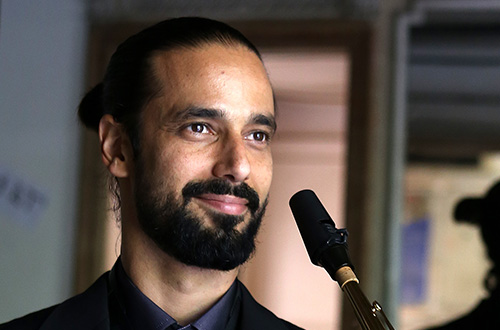
Tenor saxophone
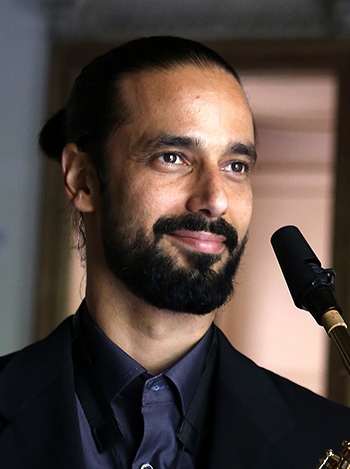
Pedro Bittencourt, Tenor saxophone
Pedro Bittencourt is a saxophonist, teacher and researcher dedicated to concert and contemporary music. He has performed at festivals in Brazil, France, Germany, Switzerland, Portugal, Spain, Greece, Slovenia, Canada, Mexico, Cuba and China. He has been assistant professor of saxophone at the wind department of the School of Music of the Federal University of Rio de Janeiro (UFRJ) since 2012. He is also the director of the UFRJ Sax Ensemble, and founder, director and saxophonist of the ABSTRAI ensemble (contemporary chamber music, with electronics). He regularly performs as a soloist and musician with the National Symphony Orchestra (Mexico) (OSN), UFRJ Symphony Orchestra (OSUFRJ), Brazilian Symphony Orchestra (OSB) and the orchestra of the Theatro Municipal do Rio de Janeiro. Bittencourt studied for his PhD in aesthetics, sciences and technologies of the arts/music at the Centre de recherche Informatique et Création Musicale (CICM) at the University of Paris 8, with research on mixed music for saxophones under the guidance of composer Horacio Vaggione.

Viola
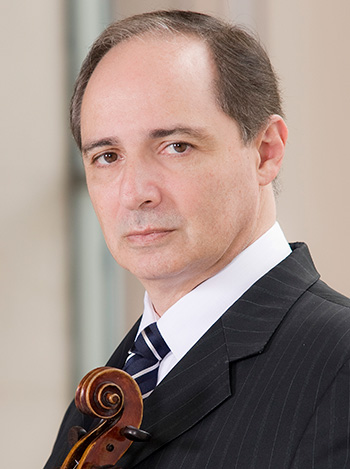
Horácio Schaefer, Viola
Principal viola of the São Paulo Symphony Orchestra since 1998, Horácio Schaefer began his musical education in São Paulo and completed his studies with Max Rostal in Germany. While there, he became a member of the Deutsche Bachsolisten chamber orchestra, performed with the Frankfurt Radio Symphony, and was appointed principal viola of the Essen Philharmonic. Between 1995 and 1998 he was principal viola of the orchestra of the Municipal Theatre in São Paulo.
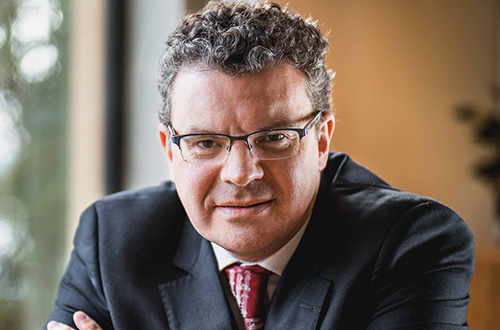
Violin
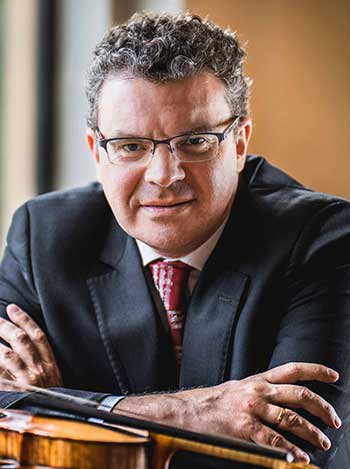
Emmanuele Baldini, Violin
Emmanuele Baldini garnered prizes from countless international competitions, and has performed as a soloist or recitalist across the globe. Since 2005 has been concertmaster of the São Paulo Symphony Orchestra where he founded the OSESP Quartet, and has collaborated with internationally renowned artists such as Maria João Pires, Jean-Philippe Collard and Jean-Efflam Bavouzet. Baldini has been concertmaster of the Orchestra del Teatro Comunale di Bologna, the Orchestra del Teatro alla Scala di Milano and the Orchestra del Teatro ‘Giuseppe Verdi’ di Trieste. He has also acted as guest concertmaster of the Orquesta Sinfónica de Galícia. As of 2017, he is the musical director of the Orquesta de Cámara de Valdivia in Chile.

Violin

Davi Graton, Violin
Violinist Davi Graton is a former member of the Camerata Fukuda, in which he began his career as leader of the orchestra – a position he also held at the Orquestra Sinfônica da Universidade de São Paulo (OSUSP) and the Experimental Repertory Orchestra (OER). He has won various competitions in Brazil, including the OSESP Young Soloists Competition and the IX Prêmio Eldorado de Música. He is currently associate concertmaster of the OSESP, teaches at the Osesp Music Academy and is a member of the Osesp Quartet and Trio São Paulo.

Violin
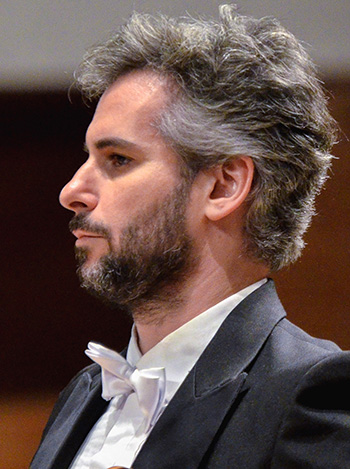
Abner Landim, Violin
Born in São Paulo, Abner Landim began his musical education with his father, luthier Jayme Landim, later studying with Cláudio Cruz, Pablo de León and Chaim Taub. He graduated from the Buchmann-Mehta School of Music (BMSM) at Tel Aviv University, receiving the diploma of honour for merit awarded to BMSM’s most outstanding students in 2013. In the same year, as a member of the Tel Aviv Brazilian Quartet, he was awarded first place in the BMSM chamber music competition, subsequently performing with the ensemble in concert halls across Germany, Israel and Brazil. Landim has served as concertmaster of the Buchmann-Mehta School of Music Symphony Orchestra in performances at Carnegie Hall in New York, the Charles Bronfman Auditorium in Tel Aviv and on tour in Brazil under the conductor Zubin Mehta. As a member of the Israel Chamber Orchestra and the Tel Aviv Soloists Ensemble he participated in concerts in Israel and Russia. He was concertmaster of the São Paulo Municipal Symphony Orchestra from 2015 to 2018 and has been concertmaster of the Goiás Philharmonic Orchestra since 2015.

Bass-baritone
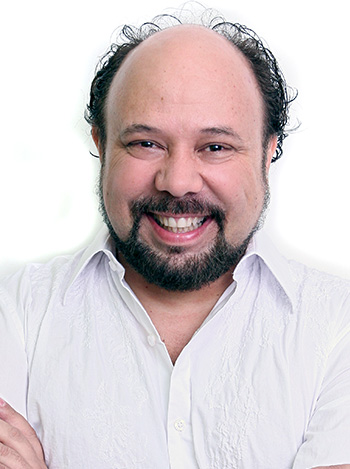
Licio Bruno, Bass-baritone
Bass-baritone Licio Bruno is one of Brazil’s most sought-after singers. Since completing his studies at the Franz Liszt Academy of Music and the Hungarian State Opera in Budapest, he has appeared in productions in opera houses in South America, Europe and Asia. He has played more than 80 roles in his career so far, and is still the only Brazilian singer to have played Wotan/Wanderer in a complete Ring cycle. In 2022 he directed and appeared in the title role of GuilhermeBernstein’s O caixeiro da taverna (‘The Innkeeper’).
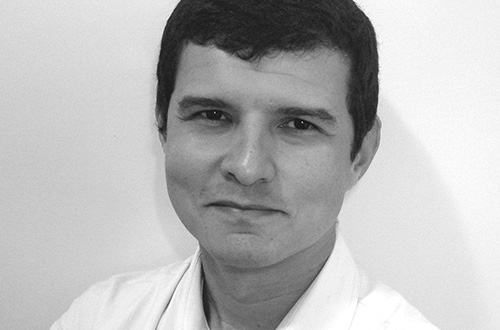
Bass-baritone
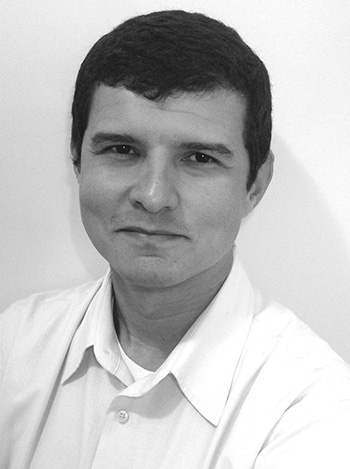
Sabah Teixeira, Bass-baritone
A member of the Osesp Choir since 2002, bass-baritone Sabah Teixeira was born in Natal and graduated from the Federal University of Rio Grande do Norte (UFRN), where he also taught history of music, singing and musical perception. As a soloist, he has performed with ensembles such as Audi Coelum and Madrigal da UFRN, in addition to the Rio Grande do Norte Symphony Orchestra, Paraíba Symphony Orchestra, Camerata Fukuda and Osesp itself.

Mezzo-soprano
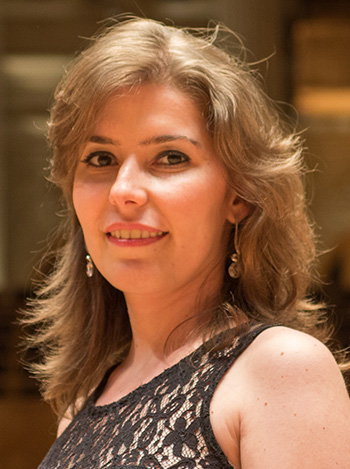
Clarissa Cabral, Mezzo-soprano
Mezzo-soprano Clarissa Cabral was born in 1983 in the city of Santos, where she began her musical studies at the age of five. In 1993, she entered the São Paulo Municipal School of Music (EMMSP), where she studied piano, flute and harpsichord. She holds a degree in piano from the School of Communication and Arts at the University of São Paulo (ECA-USP), where she also obtained her master’s degree in music under the guidance of Amilcar Zani. She continued her studies with tenor and conductor Marcos Thadeu. She has been a member of the Osesp Choir since 2007 and, since 2017, has been professor of music theory at EMMSP.

Mezzo-soprano

Luisa Francesconi, mezzo-soprano
Luisa Francesconi is one of the leading Brazilian mezzo-sopranos of her generation. She is regularly invited to perform at the principal opera houses of Europe and South America, and has played over 50 different roles so far in her career, including Carmen, Cenerentola, Rosina and Isabella, among many others. In 2018, she was named opera singer of the year by two specialist classical music websites for herperformances of Octavian in Der Rosenkavalier and Varvara in Katya Kabanová.

Mezzo-soprano

Denise de Freitas, Mezzo-soprano
Brazilian mezzo-soprano Denise de Freitas studied with Lenice Prioli. A winner of multiple national awards, including the Carlos Gomes Prize in 2004, 2009 and 2011, the Bidú Sayão Prize and the IV Brazilian Art Song Competition of the Centre of Brazilian Music, she has performed in prestigious venues across Brazil, appearing in the title roles of Carmen and Santoro’s Alma, as Delilah in Samson and Delilah and Adalgisa in Norma, among many other roles. She also enjoys an extensive symphonic repertoire, having performed works such as Das Lied von der Erde, Scheherazade, Handel’s Messiah, Falla’s El amor brujo and Santoro’s Love Songs with renowned Brazilian orchestras. She has worked with eminent conductors such as Isaac Karabtchevsky, Roberto Tibiriçá, Fábio Mechetti, Rafael Frühbeck de Burgos and Marin Alsop. International engagements include a performance of the songs of Villa-Lobos at the 2018 Felicja Blumental International Music Festival, repertoire she subsequently performed in Budapest, Berlin and Copenhagen; various productions at the Bogotá opera house; a concert version of Villa-Lobos’s Yerma in Berlin, Paris and Lisbon; and Dvořák’s Stabat Mater under Helmuth Rilling in venues across Europe.
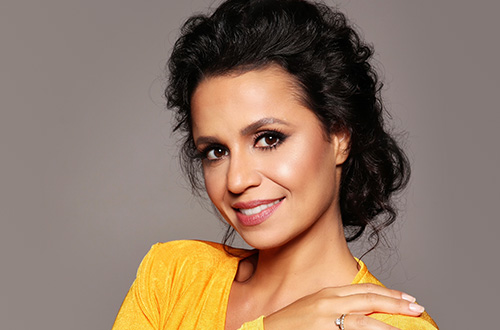
Soprano

Carla Cottini, Soprano
Brazilian soprano Carla Cottini has appeared at prestigious venues in Brazil and Europe, singing principal roles in operas by, among others, Mozart, Donizetti, Puccini, Massenet, Humperdinck and Richard Strauss. She has worked with many of the world’s most eminent conductors and stage directors. Her recent engagements include role debuts as Adina in Donizetti’s L’elisir d’amore, Gilda in Verdi’s Rigoletto, Euridice in Gluck’s Orfeo ed Euridice and, in 2022, Giulietta in Bellini’s I Capuleti e i Montecchi in São Paulo.
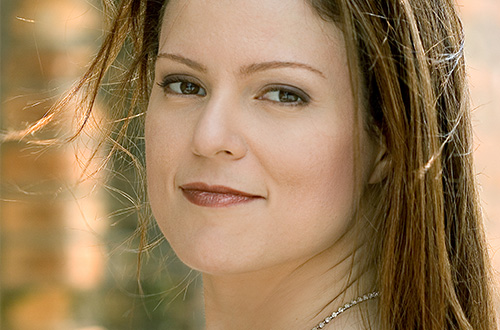
Soprano

Flavia Fernandes, Soprano
Soprano Flavia Fernandes studied at the Federal University of Rio de Janeiro. She has performed in prestigious concert halls across Brazil, and interpreted the roles of Marguerite (Faust), Micaëla (Carmen) and Helena (A Midsummer Night’s Dream), among others. Her symphonic repertoire includes Villa-Lobos’s Forest of the Amazon, Beethoven’s Symphony No. 9 and Mozart’s Requiem. She appeared in the premiere of Guilherme Bernstein’s O caixeiro da taverna as Deolinda, a role created for her by the composer, and also performed in the Brazilian premiere of Michael Nyman’s The Man Who Mistook His Wife for a Hat at Theatro São Pedro. Her discography includes Zipoli’s Missa Santo Inácio and Garcia’s Três Salmos with the Orquestra Unisinos and Roberto Duarte.
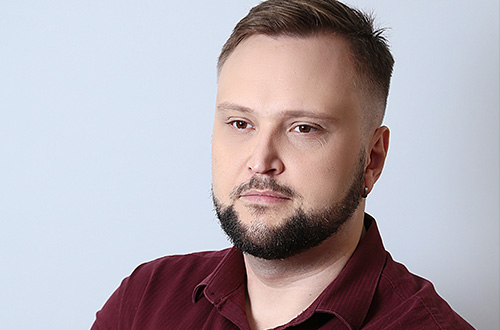
Tenor
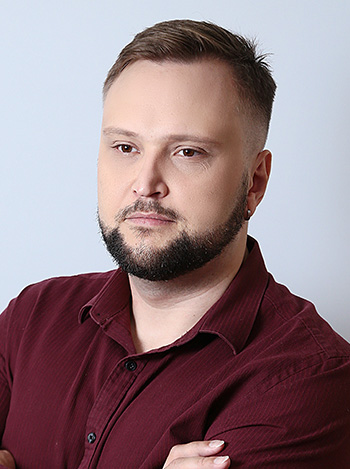
Cleyton Pulzi, Tenor
Renowned for his musicality and nobility of tone, Brazilian tenor Cleyton Pulzi has sung roles such as Ramiro, Parsifal, Arturo, Tamino and Count Almaviva with leading conductors including Roberto Minczuk, Luiz Fernando Malheiro, Michael Palmer, Leonardo Vordoni and Anton Coppola. He has performed Dvořák’s Stabat Mater with Claudio Cruz, and has recorded Beethoven’s Ninth Symphony with the São Paulo Symphony Orchestra and Roberto Tibiriçá. He graduated from the University of São Paulo and received a Master’s degree from Georgia State University.

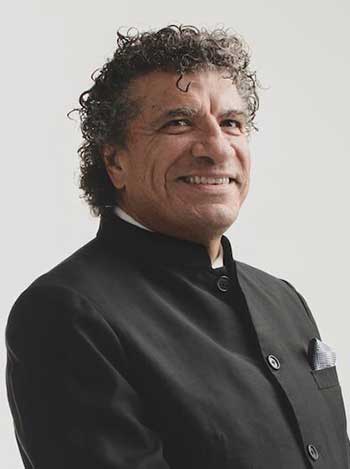
Giancarlo Guerrero, Conductor
Six-time GRAMMY Award-winning conductor Giancarlo Guerrero is music director of the Nashville Symphony and the NFM Wrocław Philharmonic in Poland, as well as principal guest conductor of the Gulbenkian Orchestra in Lisbon, Portugal. He has championed contemporary American music through numerous commissions, recordings and performances. In North America, Guerrero has appeared with the orchestras of Baltimore, Boston, Chicago, Cleveland, Detroit, Dallas, Houston, Los Angeles, Philadelphia, Toronto, and the National Symphony Orchestra. He has developed a strong international profile working with the Frankfurt Radio Symphony, Brussels Philharmonic, Deutsche Radio Philharmonie, Orchestre Philharmonique de Radio France, Netherlands Philharmonic Orchestra, and the London Philharmonic Orchestra.
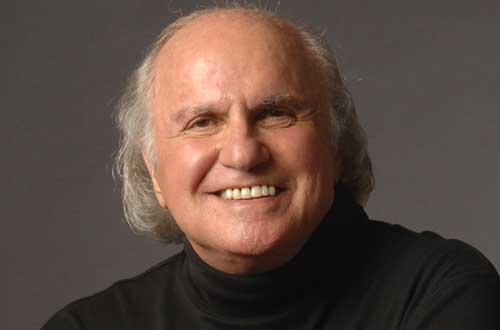
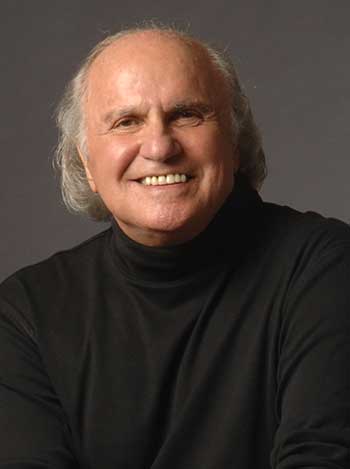
Isaac Karabtchevsky, Conductor
Artistic director and conductor of the Orquestra Petrobras Sinfônica, Isaac Karabtchevsky is also artistic director of the Baccarelli Institute and the Heliópolis Symphony Orchestra. He was awarded the Prêmio da Música Brasileira four times (2014, 2015, 2016 and 2018) for his recordings of the complete symphonies of Villa-Lobos with the São Paulo Symphony Orchestra. He has served as the musical director of the Teatro La Fenice, the Orchestre National des Pays de la Loire and the Tonkunstler Orchestra. He has taught at the Musica Riva Festival in Italy since 2000.

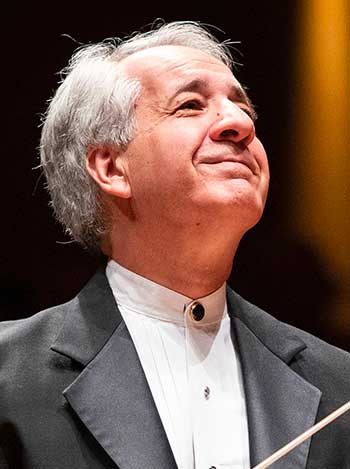
Fabio Mechetti, Conductor
Fabio Mechetti has served as the artistic director and principal conductor of the Minas Gerais Philharmonic Orchestra since its creation. In 2014, Mechetti became the conductor of the Malaysian Philharmonic, the first Brazilian principal conductor of an Asian orchestra. In the US, Mechetti directed the Jacksonville Symphony for 14 years, and is currently their Conductor Emeritus. He also served as music director of the Syracuse and Spokane Symphony Orchestras, was resident conductor of the San Diego Symphony and Mstislav Rostropovich’s associate conductor with the National Symphony Orchestra.


Valentina Peleggi, Conductor
Principal conductor of Osesp Choir between 2017 and 2019 and conductor-in-residence for the São Paulo Symphony Orchestra during 2017 and 2018, Valentina Peleggi was awarded Conductor of the Year 2016 by the São Paulo Association of Art Critics, and voted Young Talent of 2017 by Revista Concerto magazine. In 2015 she won the Taki Concordia Conducting Fellowship and in 2014 the conducting prize at the Campos do Jordão International Winter Festival, Brazil.
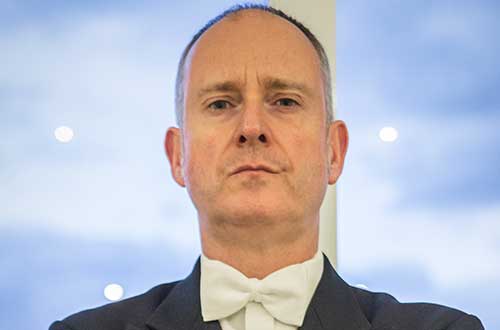
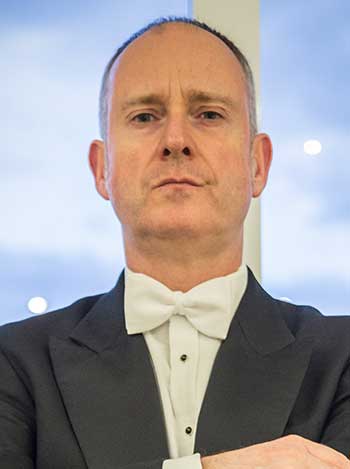
Neil Thomson, Conductor
Neil Thomson has been principal conductor and artistic director of the Goiás Philharmonic Orchestra since 2014, leading the orchestra to national prominence with its championing of Brazilian and contemporary repertoire. He also enjoys a busy international career working with all the major UK orchestras and with the Yomiuri Nippon Symphony, Tokyo Philharmonic, Tokyo Symphony, Russian National Orchestra, São Paulo Symphony, WDR Rundfunkorchester, Israel Symphony, Lahti Symphony, and the Romanian National Orchestra.


Roberto Tibiriçá, Conductor
In 2010, Roberto Tibiriçá became principal conductor of the Minas Gerais Symphony Orchestra, a role he retained until 2013. He has also been principal conductor and artistic director of the Campinas Symphony Orchestra, São Bernardo do Campo Philharmonic Orchestra and Sodre Symphony Orchestra (Montevideo). Tibiriçá is a member of the Academia Brasileira de Música and an honorary member of Brazil’s Academia Nacional de Música. In August 2020, he conducted the São Paulo Symphony Orchestra in the world premiere performance of João Guilherme Ripper’s monodrama Cartas Portuguesas.

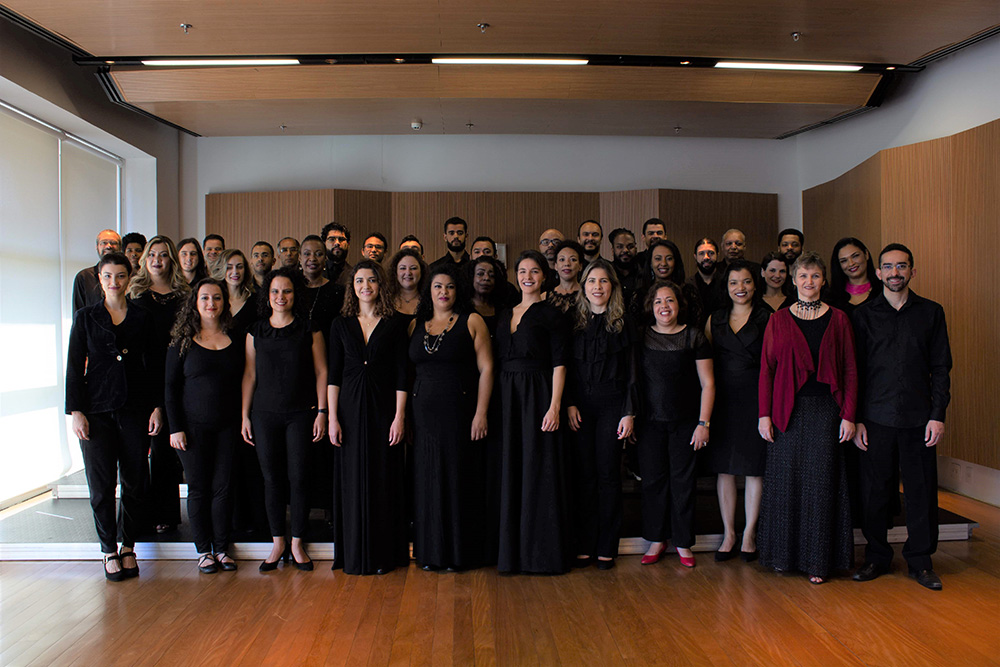
Concentus Musicum de Belo Horizonte
Founded by choral conductor Iara Fricke Matte, the Concentus Musicum de Belo Horizonte made its debut in 2016 with the Minas Gerais Philharmonic Orchestra in a performance of Mozart’s Requiem. This led to a fruitful association, with further collaborations following in the 2017, 2018 and 2019 seasons. The focus of their work lies in understanding a score and its relationship with the text it sets – the sound, articulation and rhythm of the words – as well as investigating its historical context. Projects include performances of works by J.S. Bach, his contemporary Zelenka, and colonial Brazilian composers; 18th- and early 19th-century music; and works for choir and organ bymodern and contemporary composers.
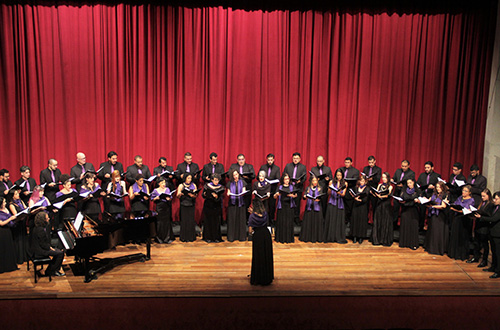
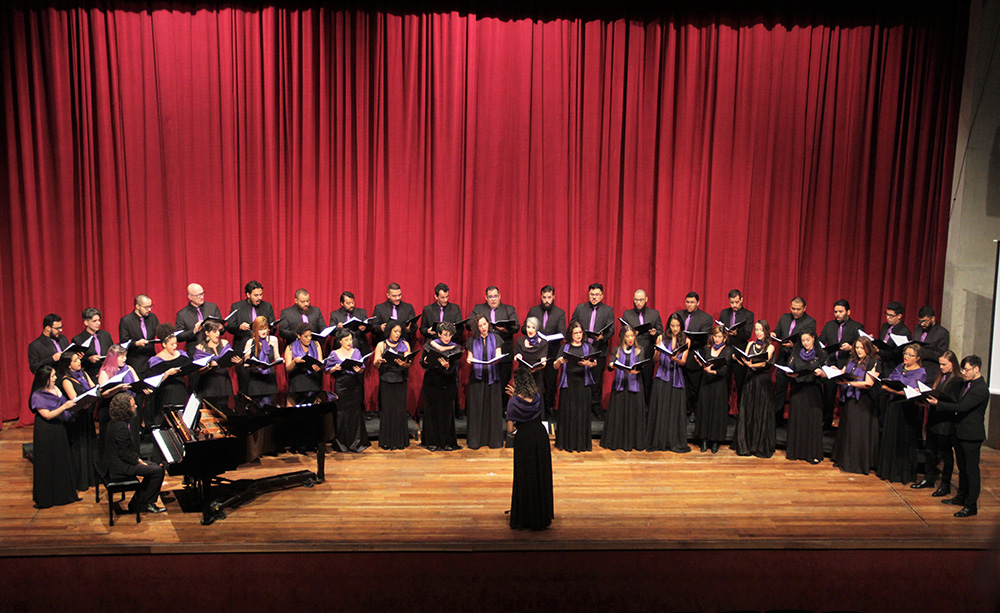
Goiânia Symphony Choir
Founded in October 1999, the Goiânia Symphony Choir is the result of the merger of two previously existing groups: the Municipal Choir and the Camerata Vocal de Goiânia. It is part of the Goiânia Symphony Orchestra, maintained by the city hall of the capital of Goiás. Comprising professional singers, its repertoire is broad, ranging from a cappella choral works to great choral-symphonic works, always seeking to value Brazilian choral literature alongside international repertoire. The mission of the Goiânia Symphony Choir is to spread and promote choral music in the capital of Goiás, performing in theatres, schools and churches, among other venues. Throughout its history, the choir has collaborated with several orchestras, and has been led by renowned conductors such as Isaac Karabtchevsky, Neil Thomson, Abel Rocha, Benoît Fromanger and Fabio Zanon, among others. In recent years, the choir’s focus has turned to a cappella repertoire of the 20th and 21st centuries, as well as performances of sacred works from different eras alongside orchestras.
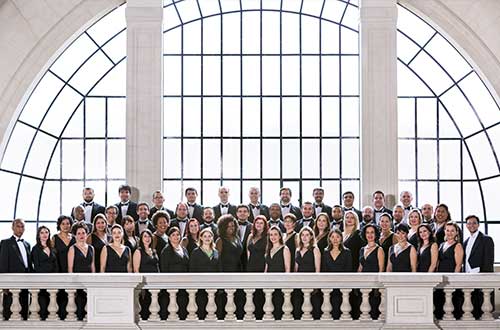

São Paulo Symphony Choir
Founded in 1994 and now recognised as a benchmark for vocal music in Brazil, the
São Paulo Symphony Choir’s repertoire spans a variety of musical periods, with a particular emphasis on the 20th and 21st centuries and works by Brazilian composers. It has recorded several albums for various labels Naxos. In January 2020, the Choir performed at the World Economic Forum in Davos, Switzerland, under the baton of Marin Alsop, honorary conductor of the São Paulo
Symphony Orchestra.
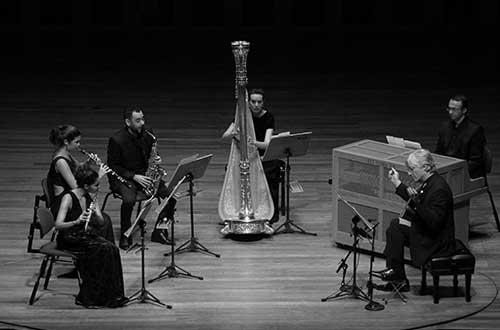

OSESP Ensemble
Cláudia Nascimento, Flute • Layla Köhler, Oboe
Douglas Braga, Alto Saxophone • Fábio Zanon, Guitar
Rogério Zaghi, Celesta • Suélem Sampaio, Harp
Adrian Petrutiu, Violin • Ederson Fernandes, Viola • Adriana Holtz, Cello
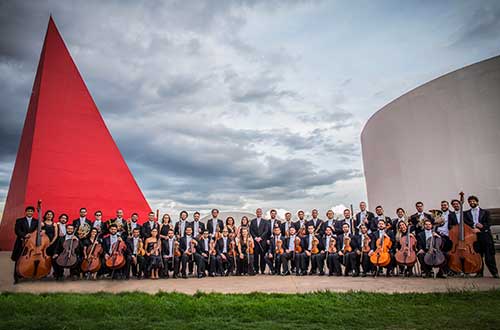

Goiás Philharmonic Orchestra
Since its creation in 1980, the Goiás Philharmonic Orchestra has committed itself to the democratisation of classical music in the Brazilian state of Goiás by placing particular emphasis on Brazilian music in its programmes. Now widely regarded as one of the top three orchestras in Brazil, the orchestra is known for its energetic and dynamic playing style and innovative approach to programming.
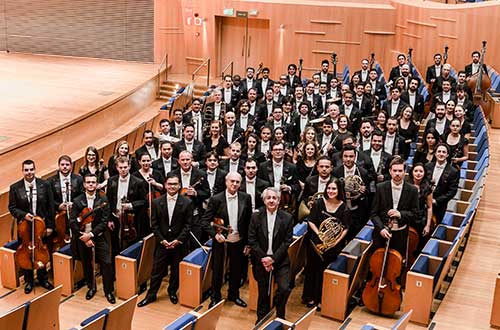
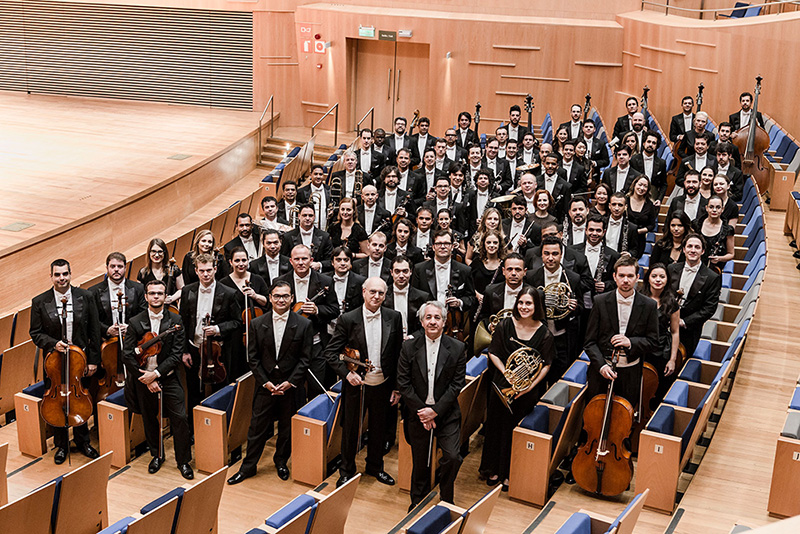
Minas Gerais Philharmonic Orchestra
The Minas Gerais Philharmonic Orchestra was established in 2008 and has become one of the most successful cultural institutions in Brazil. The ensemble has received numerous accolades and awards, including the Grande Prêmio Concerto 2015, Prêmio Carlos Gomes de Melhor Orquestra 2012, and the Melhor Grupo Musical Erudito 2010 awarded by the Associação Paulista de Críticos de Artes. The orchestra presents a diverse range of performances, including educational concerts, open-air presentations, programmes that identify and develop new compositional and conducting talent, and national and international tours.
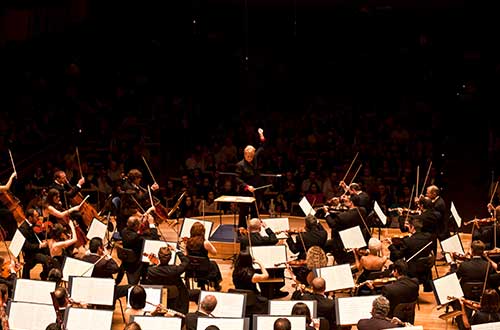
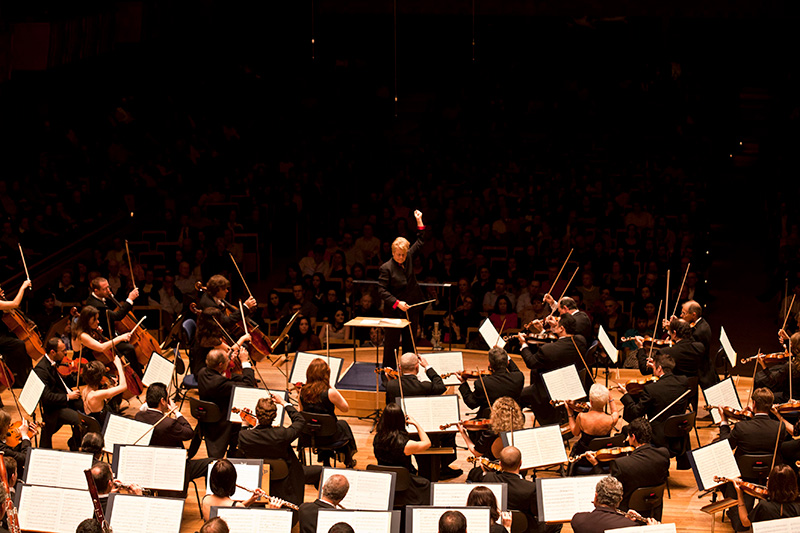
São Paulo Symphony Orchestra
Founded in 1954 and internationally recognised for its excellence, the São Paulo Symphony Orchestra has been administered by the OSESP Foundation since 2005. Marin Alsop led the orchestra from 2012 to 2019 and now serves as honorary conductor. In 2016 the orchestra performed at the BBC Proms, Lucerne and Edinburgh Music Festivals and in 2019 toured China and Hong Kong. In 2018, its recording of the symphonies of Villa-Lobos, conducted by Isaac Karabtchevsky, was awarded prizes by Revista Concerto magazine and Prêmio da Música Brasileira.
